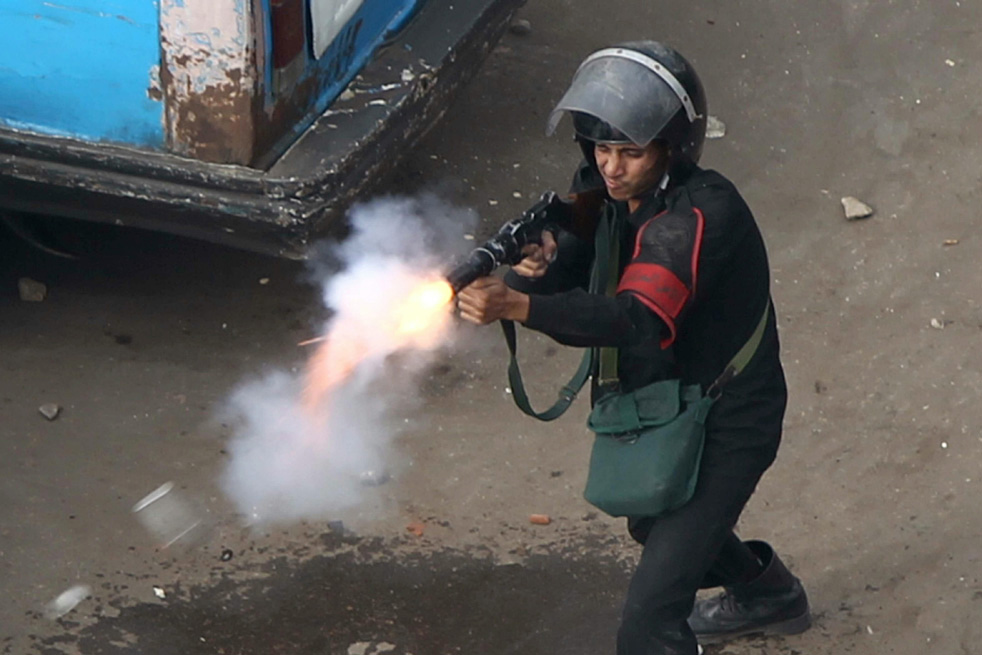SANAA: Hundreds of Yemen government loyalists wielding batons and daggers chased off a small group of protesters trying to kick off a seventh day of rallies on Wednesday to demand their president end his 32-year rule.
Police lost control of the crowd of government loyalists trying to attack around 100 anti-government protesters meeting at Sanaa University. But as the demonstrators fled, police were able to prevent loyalists from chasing them down side streets.
"The people want the fall of the president, the people want the fall of the regime," protesters shouted as they retreated from the university campus.
But they appeared to be trying to regroup, a Reuters reporter said.
President Ali Abdullah Saleh is a US ally against a resurgent al Qaeda wing that has launched attacks on foreign and regional targets from Yemen, a failing state that is one of the Arab world’s poorest countries.
Yemen, where a third of the population faces chronic hunger and 40 percent live on less than $2 a day, is also struggling to cement a truce with north Shia rebels in the north and stifle an increasingly violent southern separatist movement.
He may prove harder to topple than Egyptian President Hosni Mubarak, said Khaled Fattah, a Yemen scholar at Scotland’s St. Andrews University, contrasting the centralization of state power in Egypt with the fragmented nature of authority in Yemen.
Yemen lacks Egypt’s big urban middle class, with about 70 percent of its 23 million people still living in rural areas.
"The continuity of protests, however, may put pressure on Saleh’s government to offer more political concessions to the southern (secessionist) movement. Such concessions might lead to the adoption of a federal system," Fattah added.
Saleh, trying to calm three weeks of protests, has made concessions such as a promise to step down when his term ends in 2013 and a vow not to let his son inherit power.
Since the opposition coalition accepted Saleh’s offer of national dialogue a week ago, spontaneous anti-Saleh protests have broken out. But they are smaller than the opposition-led rallies that which at their peak drew tens of thousands.
Recent demonstrations, organized by text messaging and Facebook, rather than any political party, have been countered by pro-government crowds ready to use violence.
One protester was killed in the southern port city of Aden on Wednesday, when police fired to disperse a demonstration, the first confirmed death since the unrest began.
Provincial tours
Saleh, who has been touring Yemeni provinces each day trying to rally support as unrest grows, said on Thursday he would set up a committee to investigate the violence in Aden.
In Sanaa, Saleh loyalists have occupied the capital’s main Tahrir Square and have slept there in tents for the past week to deny anti-government protesters access to a symbolic public space similar to the square in Cairo that bears the same name.
But in Taiz, south of Sanaa, anti-government protesters took over a main square several days ago, with their numbers swelling to a few thousand in the evening and thinning out at dawn.

